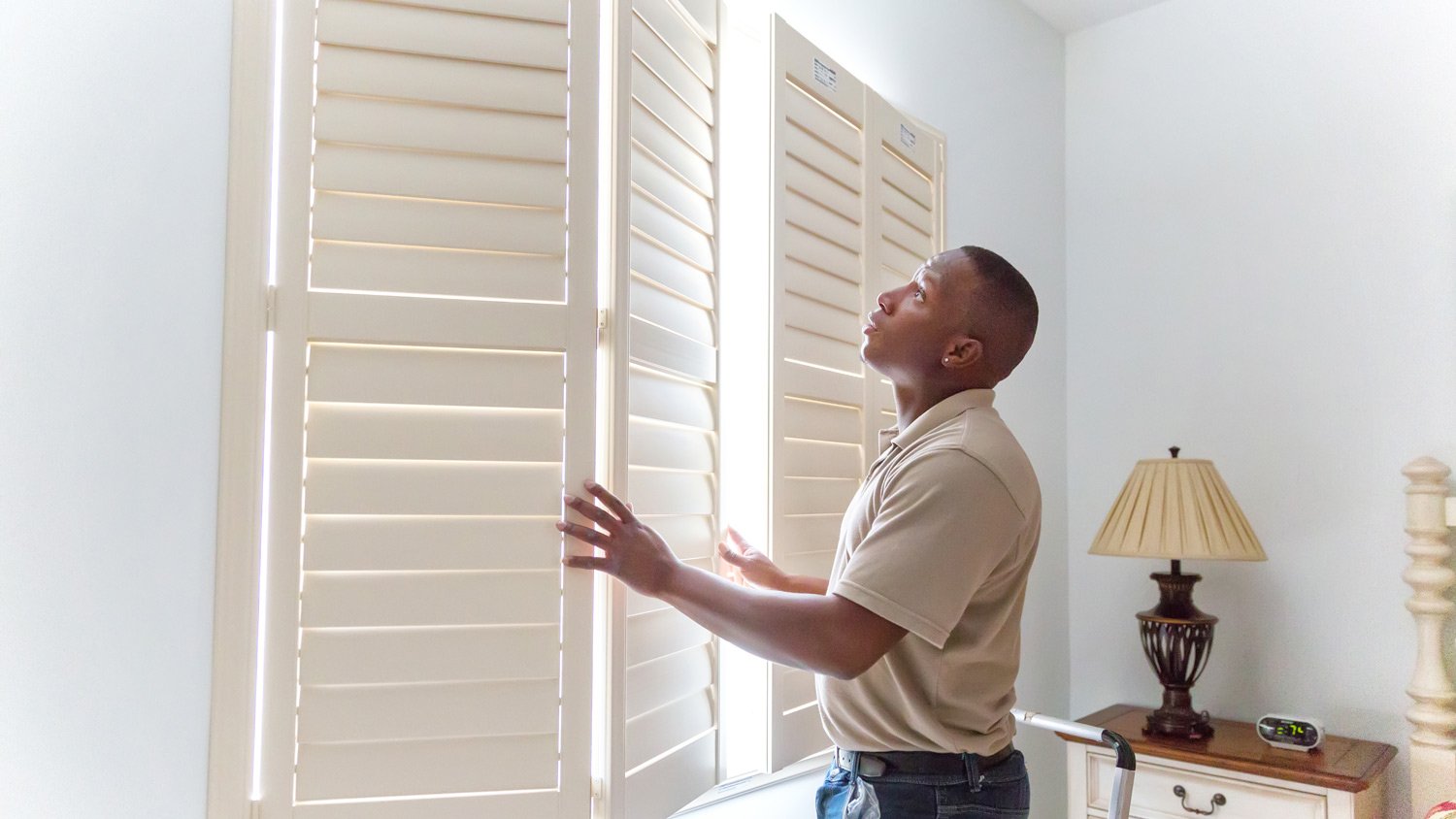Best Vinyl Windows: How to Choose the Right Style for Your Home
Vinyl windows are durable, lightweight, and affordable
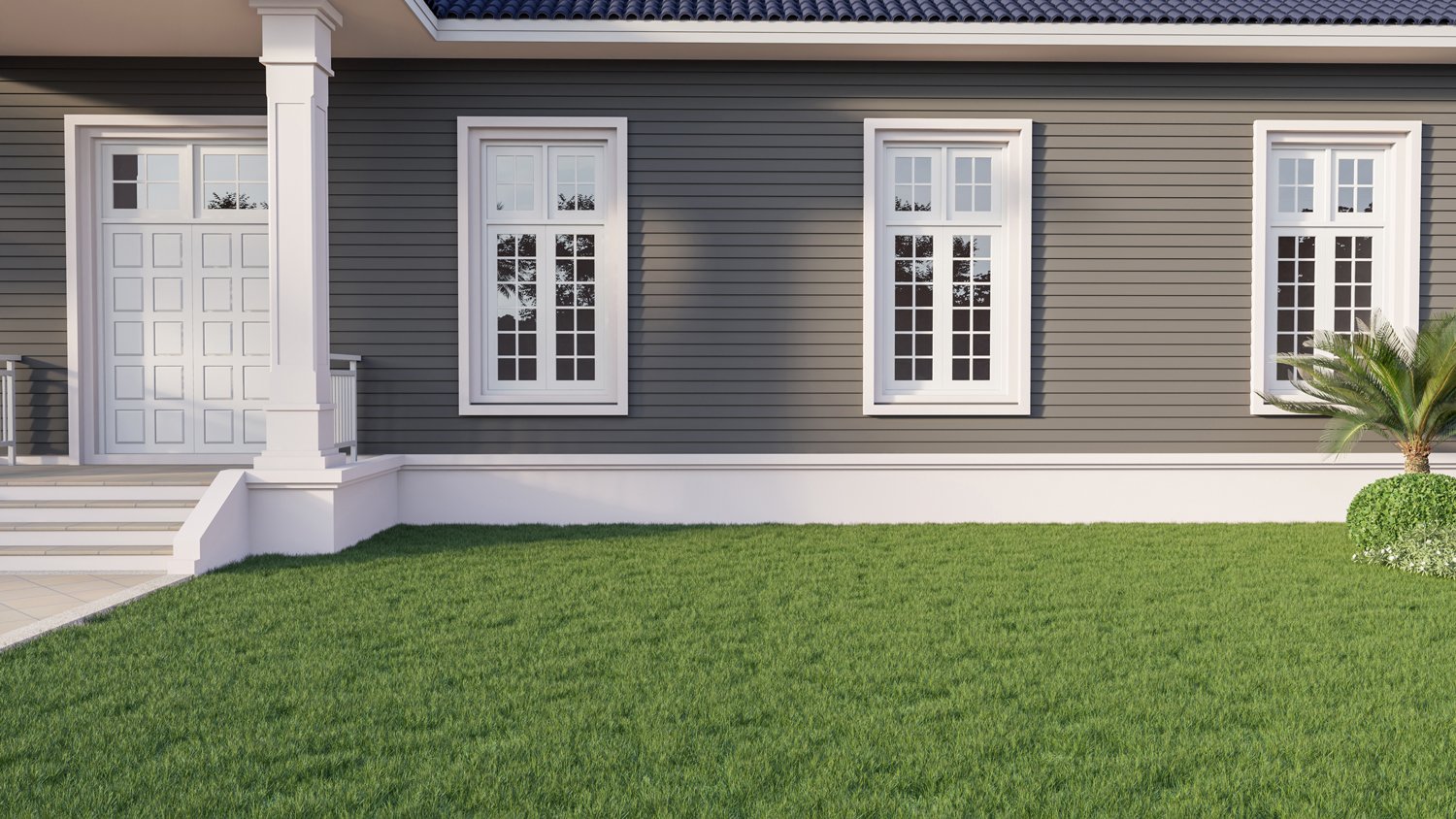

Some window frame materials are more ideally suited to specific types of homes or specific types of windows than others. For instance, wood makes a lot of sense for arched and specialty windows, because it’s easier to carve unique shapes, while fiberglass is a strong frame option for bay and bow windows. But about the best vinyl windows?
Below, we’ll review the types of windows for which vinyl often makes the most sense, including double-hung windows, sliding windows, and even picture windows. Vinyl is ideal because it’s energy efficient, low maintenance, durable, lightweight, and affordable—but it’s important to weigh vinyl window pros and cons before moving forward.
1. Double-Hung Vinyl Windows
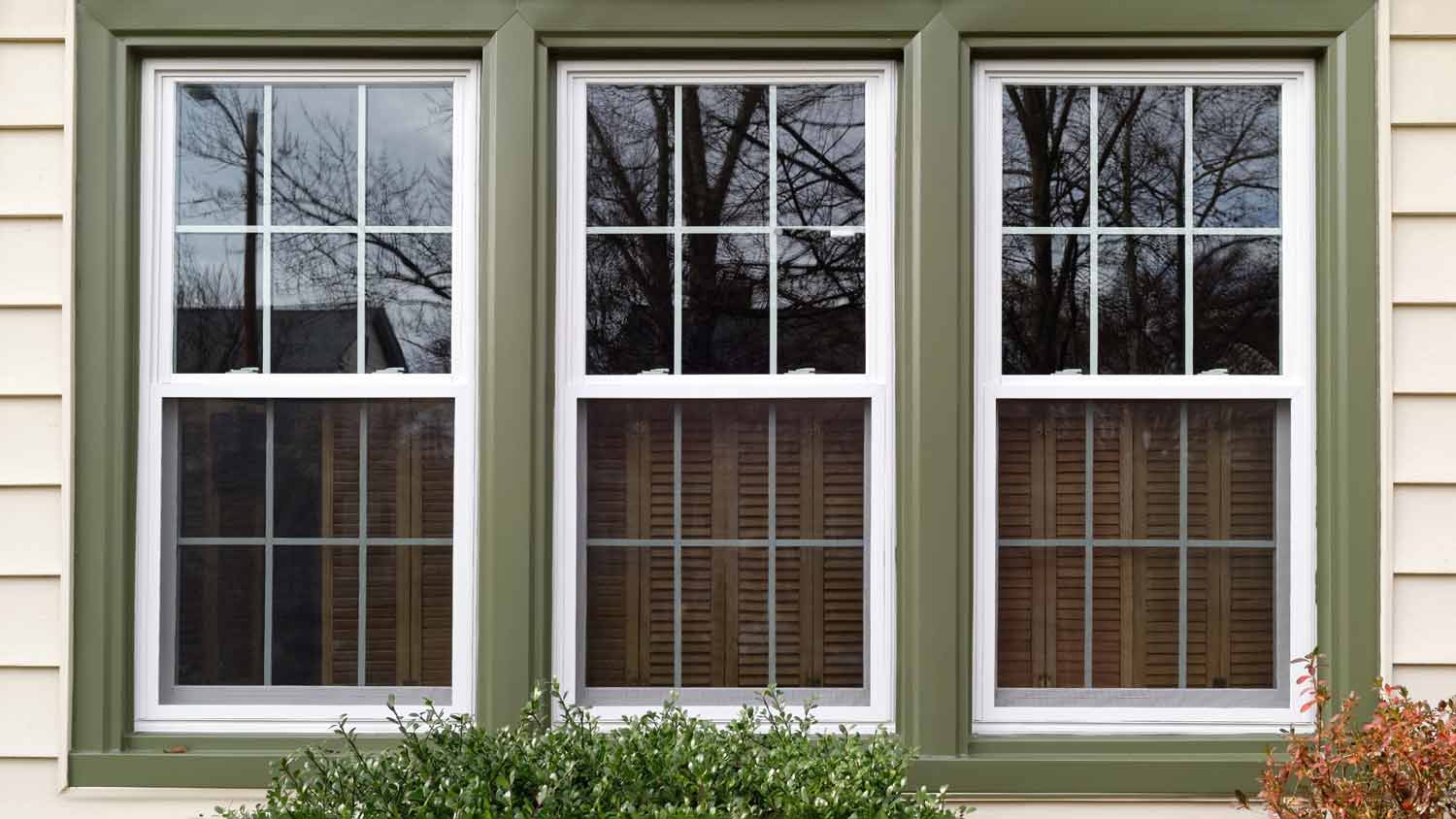
Double-hung windows are a popular choice for many reasons: They’re easy to open and close, they’re easy to clean, and they offer great ventilation. Vinyl is a common window frame material for double-hung windows because it’s affordable, low maintenance, and energy efficient.
However, vinyl may not be the best choice if replacing double-hung windows in a historic home (wood is a better fit). Vinyl is also not ideal for very hot climates, as it can warp or sag in the heat.
| Pros | Cons |
|---|---|
| Easy operation | Can sag or warp in extreme heat |
| Easy cleaning and little maintenance | Not a good match for historic homes |
| Energy efficiency |
Best for: Affordable window replacement
2. Sliding Vinyl Windows and Doors
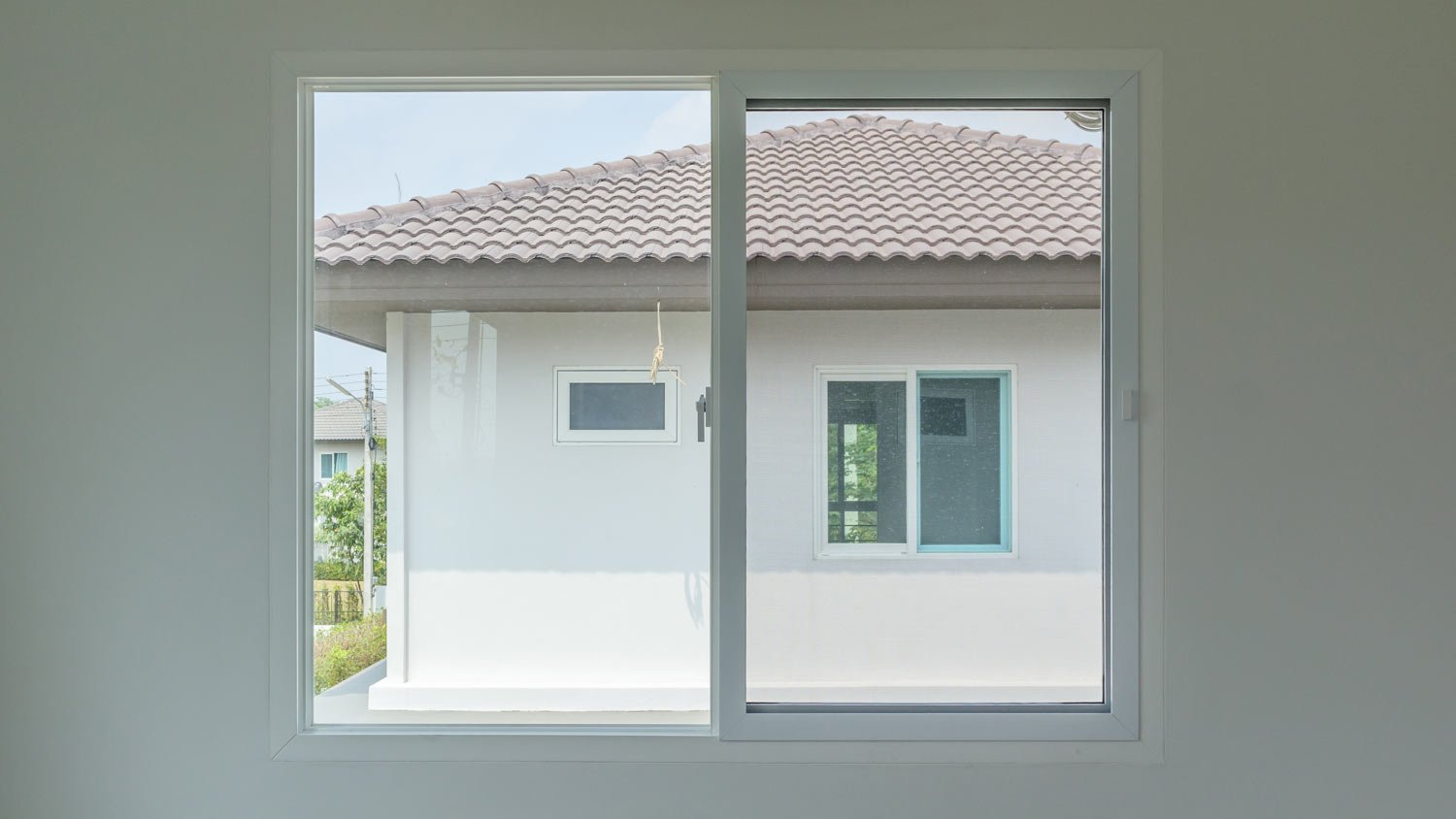
Vinyl is a great material for sliding windows and doors because it’s so lightweight. Plus, vinyl is a great choice for moisture resistance—ideal for something that might be opened more often, such as a sliding door. Sliding doors in particular may get used regularly, so vinyl’s durability and low maintenance also make the material a top choice.
That said, vinyl can expand and contract with temperature fluctuations. If you live in a hot climate, you may notice vinyl sliding windows and doors sticking when you try to open and close them.
On average, sliding glass doors cost between $1,175 and $4,250.
| Pros | Cons |
|---|---|
| Lightweight for easy operation | Can get “stuck” in certain weather conditions |
| Affordable | Less aesthetic appeal than other styles |
| Durable and low-maintenance |
Best for: Easy window operation
3. Vinyl Hopper Windows
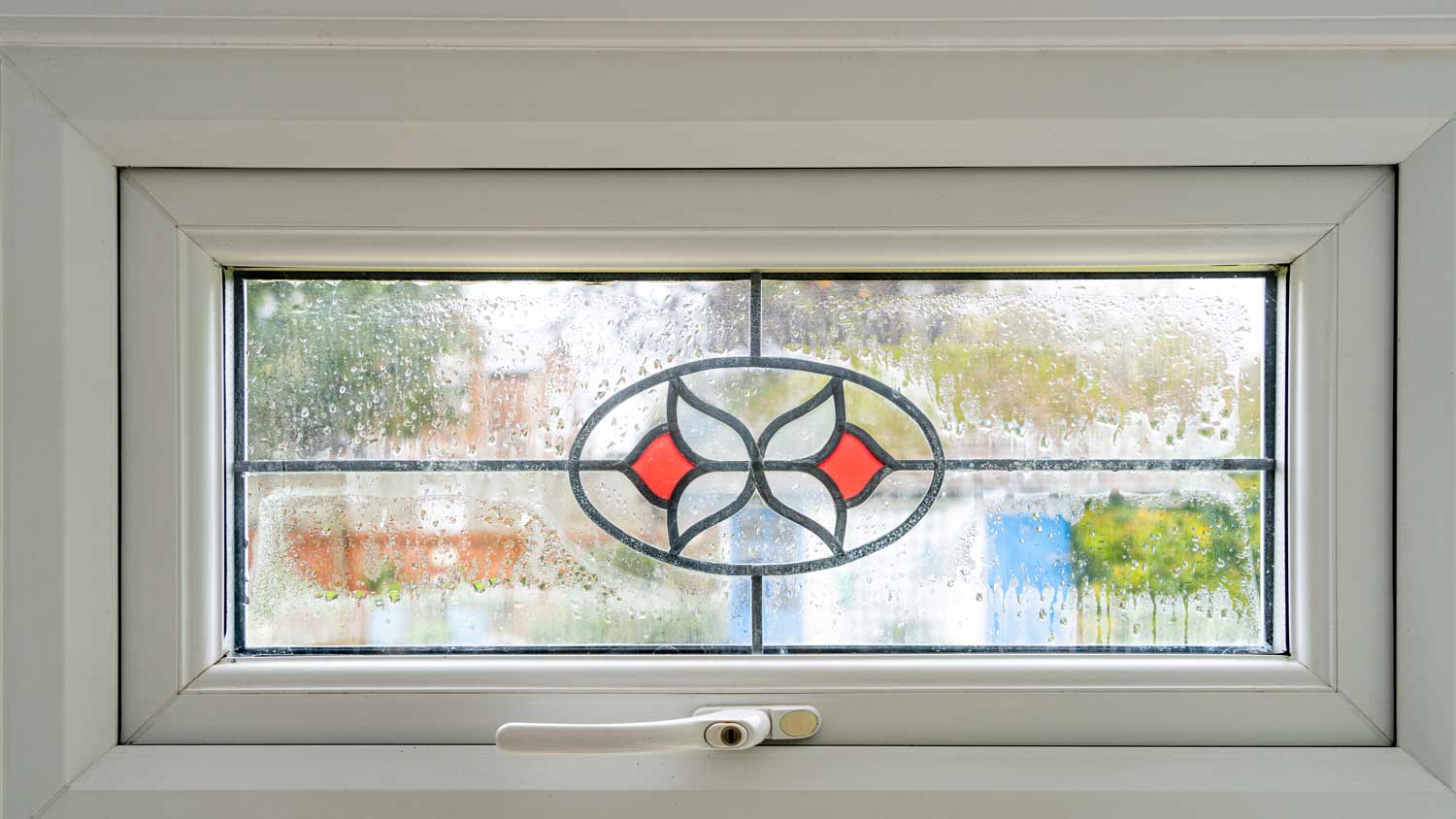
Hopper windows are a popular window style for basements and bathrooms as a way to ventilate the space. These windows are hinged at the bottom and open at the top, so you’ll need to ensure they’re installed low enough that the average person can reach up to open them.
Vinyl is a popular choice for hopper windows because vinyl itself is resistant to moisture and rot; if you have a moist or wet basement, particularly in an older home, vinyl can be a good choice; hopper windows are similarly ideal for basements without proper fan ventilation. Vinyl hopper windows are also more affordable and quite durable.
| Pros | Cons |
|---|---|
| Great source of ventilation | Limited color and style choices |
| Resistant to moisture and rot | Need to be conscious of ease of reach when installing |
| Affordable |
Best for: Moist basements
4. Vinyl Casement Windows
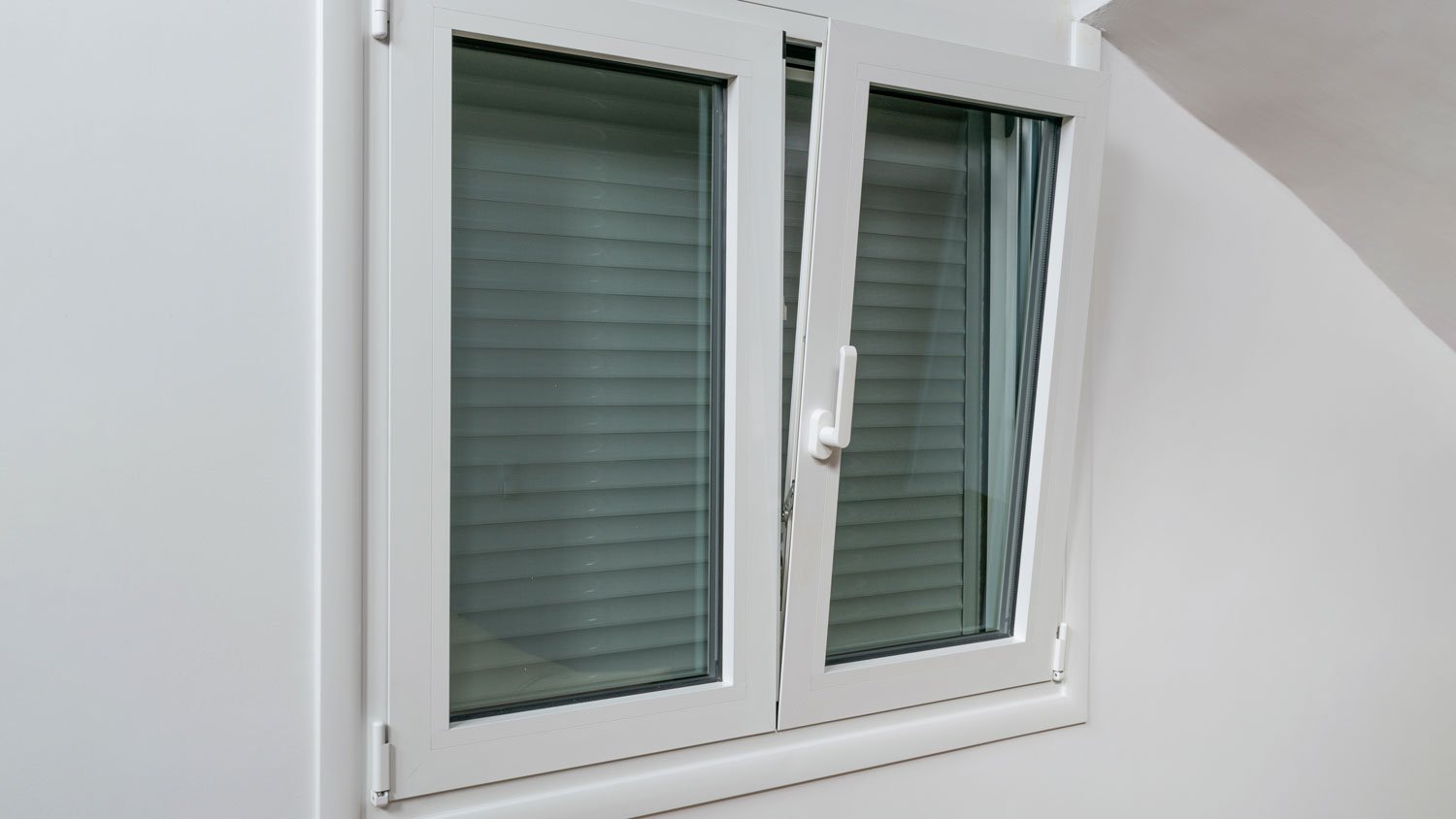
Casement windows swing open and close from hinges on one side of the window. These are great for ventilation, and they offer a tight seal for maximum energy efficiency. Some use a crank operation, which makes them easy to open even in tight spaces. Vinyl is a great option for casement windows because of its affordability, durability, moisture resistance, and lightweight design.
However, casement windows tend to need more maintenance and repair over time; because they have more complex window parts, repairing them can get expensive. Vinyl in particular may limit your color and style options and can lead to expansion and contraction issues in extreme weather, making them harder to open and close.
Vinyl casement windows cost between $200 and $780 for the materials alone
| Pros | Cons |
|---|---|
| Moisture resistant | Prone to expansion and contraction issues |
| Energy efficient | Less variety to choose from |
| Durable |
Best for: Ventilation
5. Vinyl Awning Windows
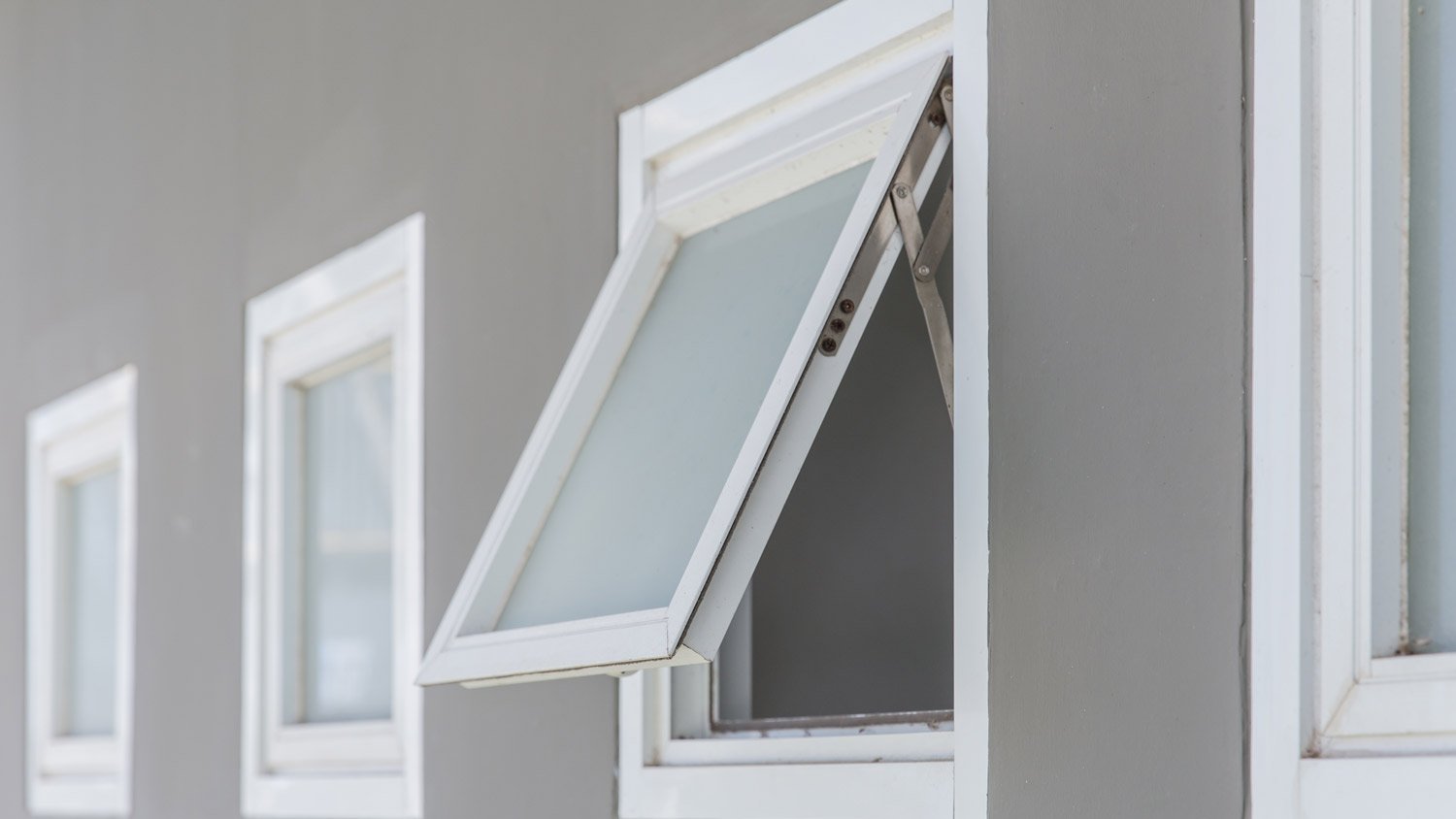
Awning windows are another great option for ventilation in basements, bathrooms, and kitchens. They’re hinged at the top and open outward, meaning you can theoretically even open them when it’s raining. Vinyl is a top choice for awning windows because it’s lightweight (and thus easy to open), durable, low-maintenance, and cost-effective.
Vinyl is also moisture resistant, making it a top contender if you’re using awning windows to help with ventilation. It also offers a tight seal to prevent leaks and drafts. However, vinyl windows do suffer from expansion and contraction issues in extreme climates and don’t offer the same aesthetic appeal as other types of windows.
| Pros | Cons |
|---|---|
| Durable and easy to operate | Not as aesthetically pleasing as other window types |
| Great ventilation | Expansion and contraction issues in hot climates |
| Can open windows in rain |
Best for: Rainy climates
6. Vinyl Picture Windows
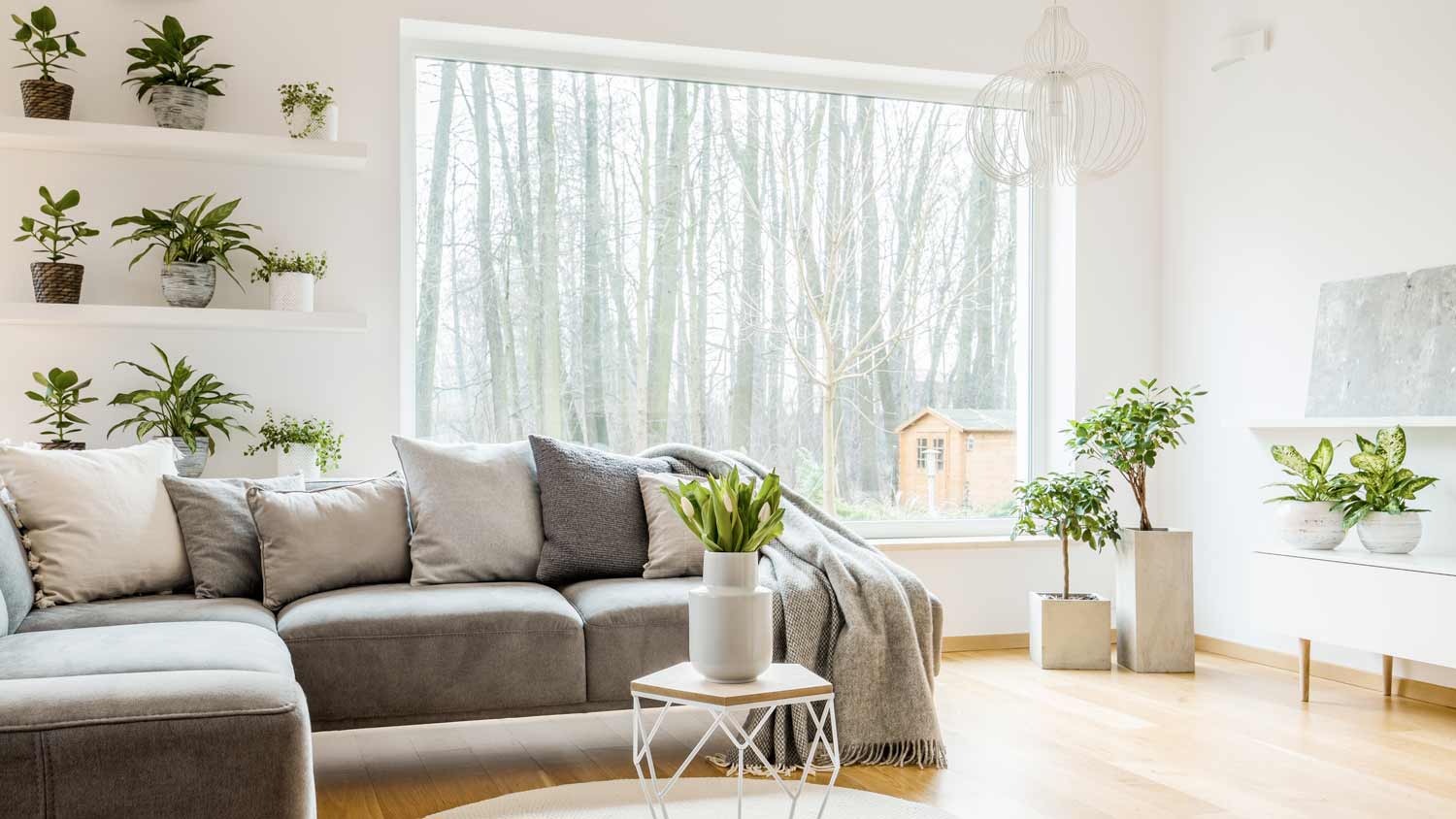
Picture windows let in a lot of natural light and are a great way to get lovely views outside your home. If your house overlooks mountains, water, a downtown area, or the countryside, consider putting a picture window in the living room or dining room—any space where people tend to gather. Just remember that you can’t open picture windows, so you can’t count on them for ventilation and egress.
Vinyl makes a lot of sense for picture windows. It’s energy efficient, low maintenance, and affordable. While wood may offer a more rustic look and fiberglass more durability, vinyl checks a lot of important boxes for picture windows. On average, vinyl picture windows cost between $140 and $900 for materials alone.
| Pros | Cons |
|---|---|
| Great views and natural light | Less durable than fiberglass |
| Affordable | Less aesthetically pleasing than wood |
| Energy-efficient |
Best for: Homes with a view
Best Vinyl Window Options
Choosing the best vinyl windows by brand comes down to several factors, including your budget, availability, and energy efficiency needs. If you’re working with a local window installer, ask for their recommendations, within your budget, to ensure the best durability, natural light, and energy efficiency.
Typically, contractors will know the best vinyl window brand for your needs and, if they get discounts through specific suppliers, may pass some savings on to you.



